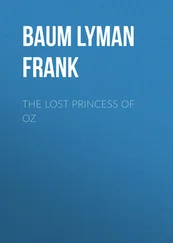L. Baum - The Last Egyptian
Здесь есть возможность читать онлайн «L. Baum - The Last Egyptian» весь текст электронной книги совершенно бесплатно (целиком полную версию без сокращений). В некоторых случаях можно слушать аудио, скачать через торрент в формате fb2 и присутствует краткое содержание. Год выпуска: 2019, Издательство: epubBooks Classics, Жанр: Прочие приключения, на английском языке. Описание произведения, (предисловие) а так же отзывы посетителей доступны на портале библиотеки ЛибКат.
- Название:The Last Egyptian
- Автор:
- Издательство:epubBooks Classics
- Жанр:
- Год:2019
- ISBN:нет данных
- Рейтинг книги:4 / 5. Голосов: 1
-
Избранное:Добавить в избранное
- Отзывы:
-
Ваша оценка:
- 80
- 1
- 2
- 3
- 4
- 5
The Last Egyptian: краткое содержание, описание и аннотация
Предлагаем к чтению аннотацию, описание, краткое содержание или предисловие (зависит от того, что написал сам автор книги «The Last Egyptian»). Если вы не нашли необходимую информацию о книге — напишите в комментариях, мы постараемся отыскать её.
The Last Egyptian — читать онлайн бесплатно полную книгу (весь текст) целиком
Ниже представлен текст книги, разбитый по страницам. Система сохранения места последней прочитанной страницы, позволяет с удобством читать онлайн бесплатно книгу «The Last Egyptian», без необходимости каждый раз заново искать на чём Вы остановились. Поставьте закладку, и сможете в любой момент перейти на страницу, на которой закончили чтение.
Интервал:
Закладка:
Tadros began by relating the “royal one’s” early history, emphasizing the fact that old Hatatcha had been able to support herself and Kāra without any labor whatever. Then he told of Hatatcha’s death, and how he, Tadros, had discovered the valuable rolls of papyrus in Kāra’s possession. From thence to the brilliant advent of the “prince” in Cairo was but a step, and the entire history permitted but one explanation—the fact that Kāra had knowledge of an ancient tomb containing great riches.
“Once,” said the dragoman, “Kāra and I made a visit to Fedah; but I did not suspect his errand and so neglected to watch him, being at the time greatly occupied with a certain maiden. In the morning I found he had loaded his traveling cases with treasures—wonderful gems that have enabled him to live in princely fashion ever since.”
“Where did he get them?” asked Consinor, eagerly.
“As I said, from some hidden tomb, the secret of which is known only to himself.”
“Do you think he has carried all of the treasure away?”
“I have reason to believe that more remains than has ever been taken. Once, in an unguarded moment, Kāra told me that he could not spend it all in a thousand years.”
“Do you suppose we can discover this tomb?”
“Yes, if we are clever. It is no use to hunt without a clew, but Kāra will furnish us the clew we need.”
“In what way?” the viscount inquired.
“He is coming here presently.”
Consinor frowned.
“I do not care to meet him,” he said, hastily.
“Nor do I,” rejoined Tadros, with a shudder; “but it will not be necessary for us to meet Kāra, who will not suspect we are in the village.”
“What then?”
“He is coming to secure more treasure, his former supply being exhausted, as I have reason to know. He has promised his tradesmen money, and will not dare delay his visit to Fedah. Besides, he is not far from here at this very moment. By to–morrow, if he comes in Winston Bey’s dahabeah, he will reach this place. If he decides to take a railway train, he may be here this evening.”
“In that case, what do you propose to do?” demanded Consinor.
“Spy upon him; discover where the treasure is hidden, and when he is gone, help ourselves,” was the confident reply.
The idea seemed quite feasible when further elaborated. They entered the room of Kāra’s dwelling and examined the place carefully.
“This,” explained the dragoman, “is doubtless his starting–point. From here he has either a secret passage into the mountain, or he steals away to the desert, where the entrance to the tomb is hidden underneath the shifting sands. We must be prepared to watch him in either event, and that is why I have proposed to you to assist me, rather than try to secure all the fortune myself. I am assured there is plenty for two, and to spare.”
“Doubtless,” replied the viscount, laconically. Already he saw visions of great wealth, which would enable him to return to London and rise superior to all the sneers and scandals that had been thrust upon him.
They discussed the matter long and earnestly, the few inhabitants of the village, stupid and inert, being entirely ignorant of their presence. It was finally decided that on Kāra’s approach Consinor should conceal himself beneath the dried rushes of the old bed, Tadros so arranging his position that the viscount could observe every action of one moving within the room. Then the dragoman would himself lurk at the edge of the village to follow Kāra if he stole away into the desert.
As a matter of fact, Tadros was firm in his belief that the treasure was hidden within the mountain; but he had no intention of risking his own life when he could induce Consinor to become his catspaw. Discovery meant death—he knew that well enough. It was better not to take chances, and if the viscount succeeded in learning Kāra’s secret it would mean the same to Tadros as learning it himself. He knew how to handle this outcast Englishman, and if the treasure proved as large as he suspected, he could afford to be generous, and would play fair with his accomplice. Otherwise—but that could be considered later.
Tadros did not desire to expose the stranger to the curious gaze of the villagers, but there was no harm in their knowing that the dragoman had come among his old friends once more; so he insisted that Consinor should stay concealed in Nefert’s hovel, flying to a dark corner at the sound of every footstep, while he himself visited Sĕra and her daughter in furtherance of his sagacious plans.
Chapter XXIII
Mother and Daughter
As the dragoman approached Sĕra’s hut he paused upon the threshold to observe the scene within, hesitating, as he remembered that it was because of his own reckless conduct that the Nile girl had been stripped of her beautiful gowns and jewels and sent home from Cairo scorned and repudiated.
Her humiliation and despair had haunted him ever since.
But now he found her seated meekly at the well–worn loom, casting the shuttle back and forth with the same mechanical lassitude she had exhibited of old. The discolored black dress, open at the breast and much patched and torn, was her sole garment. Even the blue beads were again about her neck.
But the eyes she turned toward Tadros were different, somehow. Their former velvety depths were veiled with a dull film, while the smoothness of her brow was marred by the wrinkles of a sullen frown.
After a moment, however, she seemed to recognize the dragoman, and rose from her place with a sudden eager look and flushed cheeks.
“You have come for me again?” she asked.
“No,” answered Tadros, casting himself upon a settle. He felt abashed without knowing why he should entertain such a feeling—abashed and sorrowful, in spite of his habitual egotism and selfish disregard of others.
Nephthys leaned back and resumed her weaving. The film covered her eyes again. She paid no further attention to her mother’s guest.
Sĕra, however, was voluble and indignant.
“That Kāra,” she hissed, “is a viper—a crocodile—a low, infamous deceiver! He is worse than an Arab. Henf! If I had him here I would stamp him into the dust. Why did he spurn my beautiful daughter from his harem? Tell me, then!”
“Merely because Nephthys and I, being old friends, wished to converse at times of you and our acquaintances at Fedah. Why should we not gossip and smoke a cigarette together? Once I owned her myself.”
“True. You were a fool to sell her.”
“Still, you must not forget that Nephthys has had an experience,” he resumed, more lightly. “For a time she was a queen, splendid and magnificent beyond compare in her robes of satin and her sparkling jewels. Ah, it is not every girl who enjoys such luxury, even for a brief season! Let her be content.”
“Content!” screamed old Sĕra, shrilly; “it has ruined her. She is no longer happy in the old home, and when she speaks, which is but seldom, it is only to curse Kāra. Look at her! Is she now fat and beautiful as before? No. If the poor child lives long enough, she will die a skeleton!”
“Allah forbid!” exclaimed Tadros, hastily. “But if she expects to be taken back again, her case is hopeless. I am sure Kāra will never relent or restore her to favor. He is a poor judge of a woman. But I,” slapping his chest proudly, “I will take Nephthys to myself; and while I do not promise to robe her as gorgeously as did Kāra, she shall become fat again, and have her silks and ornaments the same as before.”
“And the cigarettes?”
“Of course.”
He drew a box of the coveted cigarettes from his pocket and tossed it toward her. Sĕra lighted one eagerly and gave the box to Nephthys. After staring at it blankly for a moment the girl seemed to understand. She took a cigarette and lighted it from the one her mother was smoking. A smile of childish enjoyment slowly spread over her face, and she left her loom and came and sat upon Tadros’ knee.
Читать дальшеИнтервал:
Закладка:
Похожие книги на «The Last Egyptian»
Представляем Вашему вниманию похожие книги на «The Last Egyptian» списком для выбора. Мы отобрали схожую по названию и смыслу литературу в надежде предоставить читателям больше вариантов отыскать новые, интересные, ещё непрочитанные произведения.
Обсуждение, отзывы о книге «The Last Egyptian» и просто собственные мнения читателей. Оставьте ваши комментарии, напишите, что Вы думаете о произведении, его смысле или главных героях. Укажите что конкретно понравилось, а что нет, и почему Вы так считаете.












